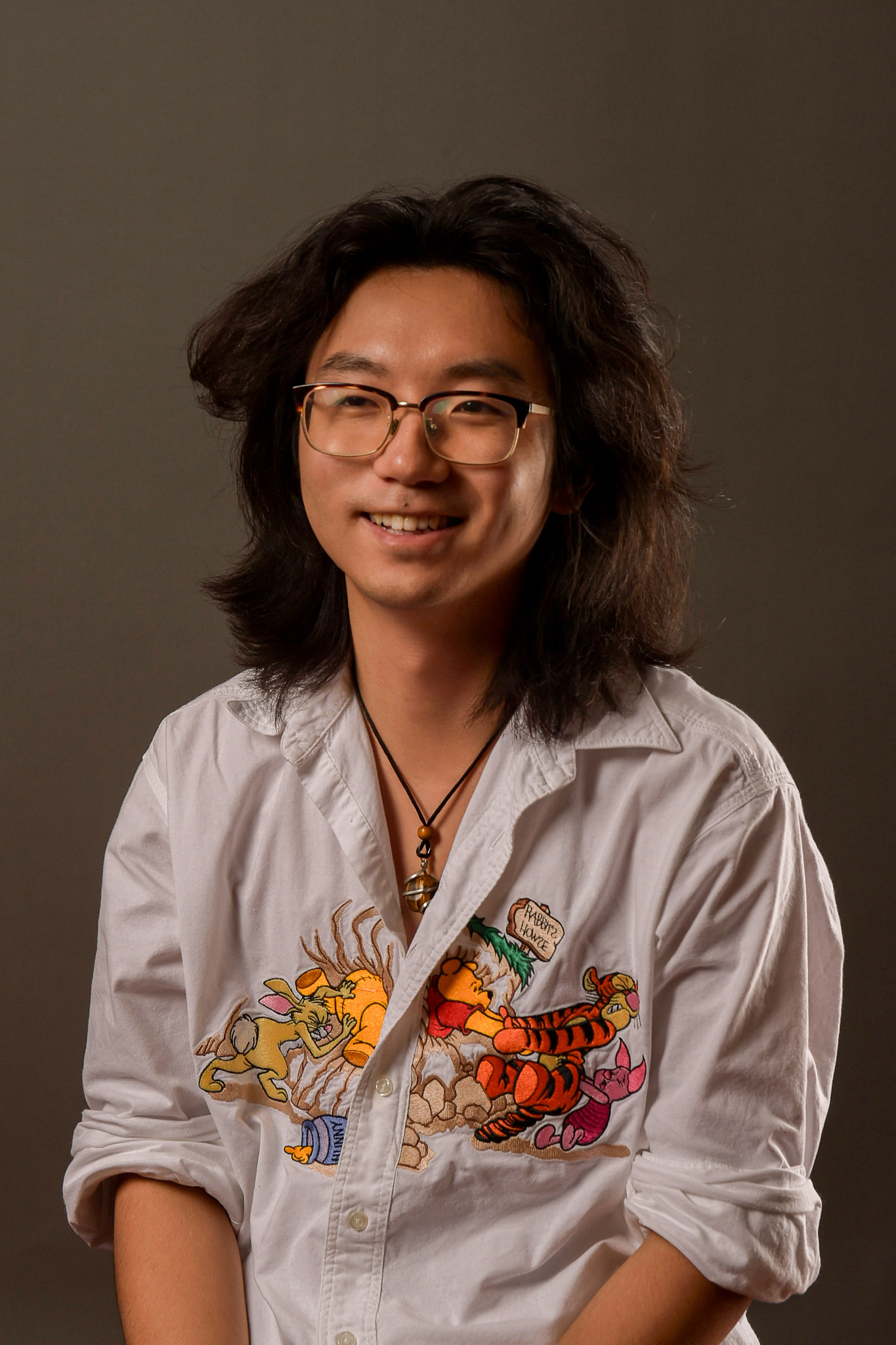We’re excited to introduce you to the always interesting and insightful Jerry Lee. We hope you’ll enjoy our conversation with Jerry below.
Jerry, thanks for joining us, excited to have you contributing your stories and insights. Can you talk to us about a project that’s meant a lot to you?
Seraphim (2023) was one of the most meaningful projects I’ve worked on, because it truly started my journey as a serious editor and has helped me grow in countless ways. I remember reaching out to the director Oscar Ramos about wanting to edit the film because I was intrigued by the script, and after our first meeting, it was clear to me that we liked a lot of the same movies. Even though Oscar pitched the script as a horror/drama film, I remember telling Oscar to approach one of the scenes like a heist film, and I think that stuck with him after our meeting and prompted him to hire me.
Seraphim was the first film I’ve worked on as an editor with a sizable budget and crew size, and the project was intensely collaborative, as I closely worked with my co-editor Ji Lee and the director, and we developed working relationships that will last a lifetime. During the editing process, I also received a tremendous amount of mentorship from Jason Rosenfield, who has been pivotal in teaching me the foundations of what it means to be an editor: how to shape actors’ performances, how to discover the core of a scene, and knowing how to interpret notes from vastly different perspectives. The overall editing process, while difficult and intense, was incredibly fulfilling and I will always carry with me the key lessons learned from this editing project. Seraphim has also been very fortunate in the festival circuit. We were lucky enough to have won a jury award at the Austin Film Festival and it’s always great to see the hard work and talent of so many friends and collaborators be recognised by a major festival.

As always, we appreciate you sharing your insights and we’ve got a few more questions for you, but before we get to all of that can you take a minute to introduce yourself and give our readers some of your back background and context?
I am a Chinese-Australian film editor based in Los Angeles, and I’ve spent much of my life meeting new people and acclimating to new environments, having grown up in China and Australia. Such constant change has made me a curious and open-minded editor because growing up in 3 different continents forced me to constantly learn new things. My curiosity is my strength as an editor, because I love to interrogate the artists I work with, and discover new things about their own art together. I believe that we are always greater than the sum of our parts and I love working with collaborators who offer differing views and together, we bring out ideas within each other that we didn’t know we had.
I specialize in editing narrative genre films and music videos. While I prioritize storytelling and character in my work; am also a very stylized editor; I love working with directors who have distinct styles and flairs which I can explore and commit to, which is why I enjoy working in genre films and music videos. I’ve edited films that have been awarded at the Austin Film Festival, and have been selected for Screamfest Horror Festival, Chattanooga Festival, FilmQuest, and KCET’s Fine Cut Festival. This year, I had the opportunity to edit my first feature length narrative film, as well as my first documentary project, both of which are set to be released in 2025.
Besides editing, I am also a music video director and primarily direct hip-hop music videos. I am influenced by East Asian cinema movements like the Taiwanese New Wave, and I like to incorporate their visual styles of capturing urban environments into my music video work. My music video directorial debut, “Hold, My Head”, which won “Best First-Time Director” at the 2022 Fall Music Video Awards”, is a recreation of a sequence from Wong Kar Wai’s “Fallen Angels”. I love working with new musical artists and I am currently a part of a catalog of music video directors at Live2, which is a company that connects music artists with music video directors.
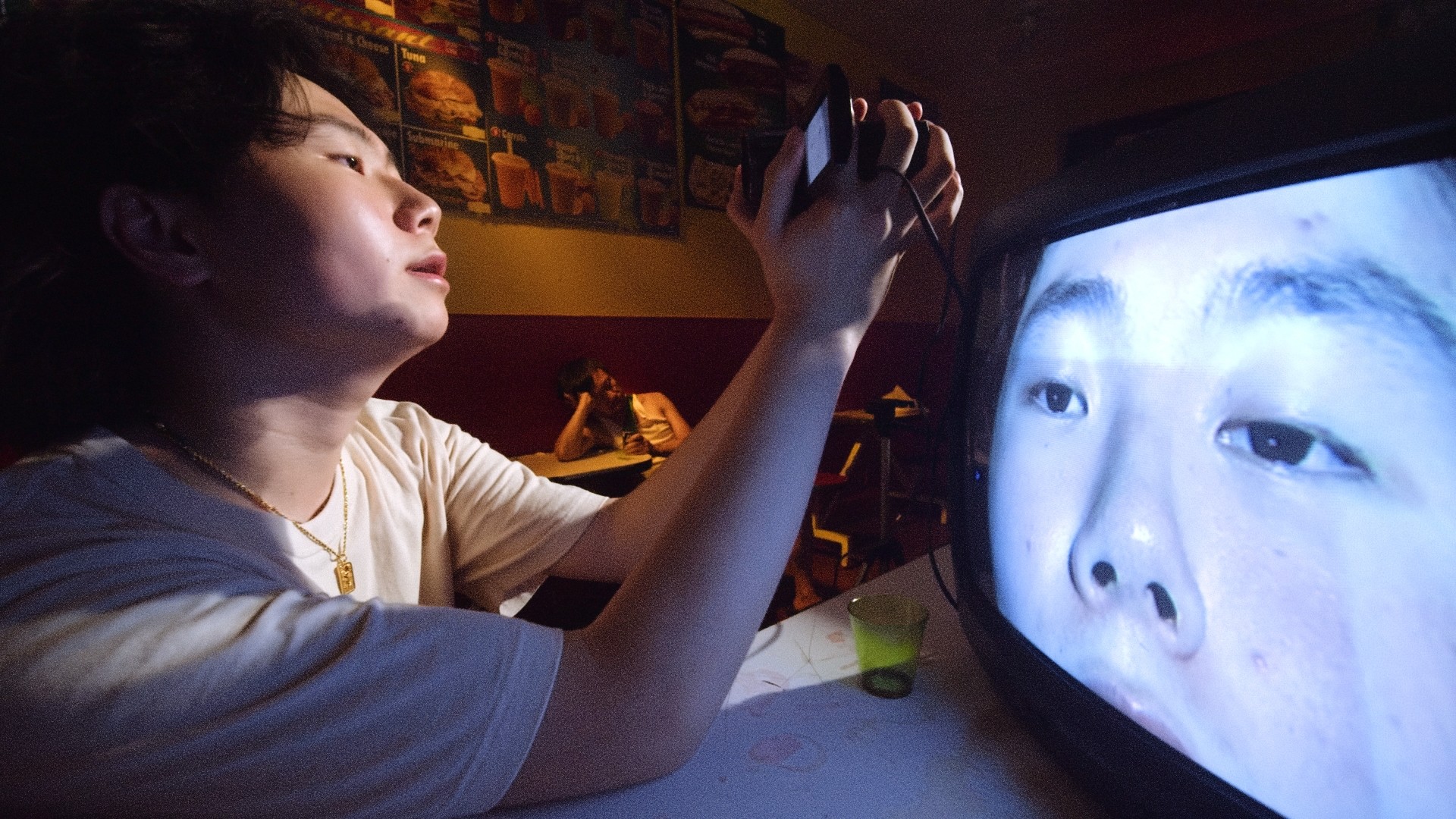
We often hear about learning lessons – but just as important is unlearning lessons. Have you ever had to unlearn a lesson?
A lesson I’ve had to unlearn (and am still unlearning) is my tendency to overanalyze and overintellectualize during the creative process. I am a very analytical person, and growing up, I’ve prided myself in being articulate and knowing how to give a well-thought-out, logical answer to everything. I don’t tend to make decisions quickly or based on instinct, because I always carefully consider the reasoning to all options. Obviously, this trait has its benefits, and it has made me a very deliberate and thoughtful artist. However, being very analytical has also restricted my approach on filmmaking in some ways.
When I first started making movies, I approached making a film almost like solving an equation. There was a general sense of “if I find the correct inputs, then the output of the movie should work as intended.” I treated filmmaking like writing an argument in an essay and it made me distrustful of my emotions and instincts. It took me a while to truly understand that film is inherently an aesthetic medium; the experience of viewing a film is a visceral one and less a logical or analytical one. I still find enjoyment in analyzing films and breaking them down, but as an editor, I now aim to approach film as an emotional experience for the audience. Outside of film, I am also a musician and a photographer and I love these mediums for how visceral and instinctual they are during their creation process; I often struggle to describe why I am drawn to a rhythm, timbre or melody, just like how I cannot fully explain why a certain composition and lighting speaks to me. My love for these inherently visceral mediums reminds me to trust my instincts more in filmmaking and to be okay with making inexplicable creative choices that just feel right.
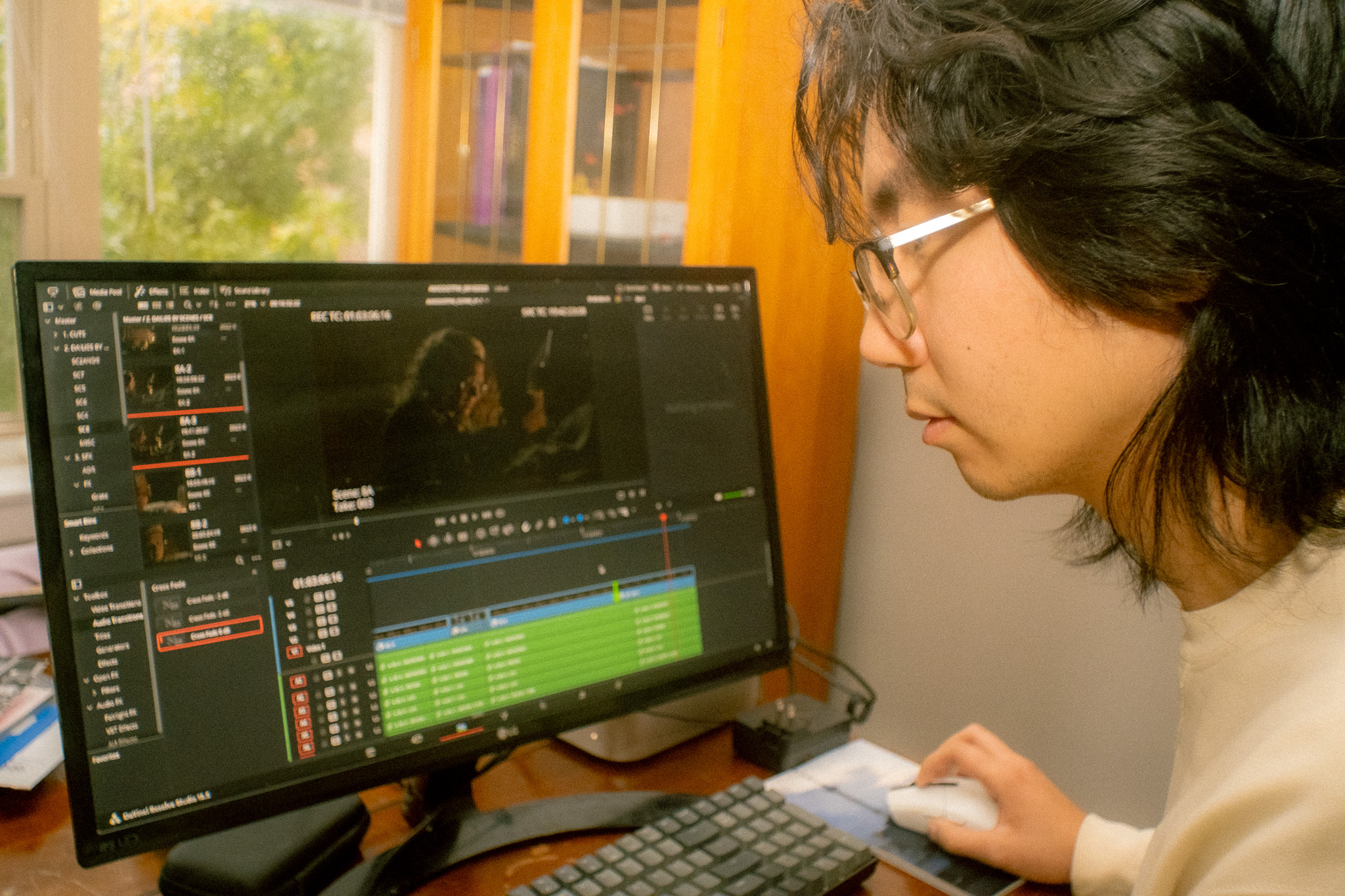
Is there mission driving your creative journey?
Helping the next wave of Asian diasporic filmmakers expand what Asian American cinema and Asian diasporic cinema can look like is definitely an overarching goal of mine.
The Asian diasporic media I consumed growing up have been very influential to me and I admire the huge strides they made for Asian media representation in an unrelenting industry. In the past few years, Asian-led projects have become increasingly common, and it’s something that is very inspiring to see.
At the same time, I know that there’s still lots of unexplored territory for Asian diasporic film. A lot of existing Asian media representation is created in response to the history of yellowface and a general lack of visibility, and much of the resulting media is heavily centered on cultural identity. With Asian diasporic artists, there’s a weight of responsibility to always be discussing cultural heritage and tell stories with tropes like the “stinky lunchbox”, and many festivals and institutions tend to box in Asian filmmakers into their racial and cultural identities. As a result, I’ve seen institutions intended to uplift Asian filmmakers actually reject submitted pieces by Asian artists that aren’t explicitly about Asian identity. All this to say, I believe that Asian diasporic artists and audiences should be able to enjoy and tell intersectional stories that are not only about racial prejudice and cultural disconnect. The Asian diaspora is infinitely complex, contradicting and flawed, and there’s a lot of room to explore that through film.
Seeing Justin Lin’s directorial debut “Better Luck Tomorrow” (2002) during college was a life-changing experience for me because it showed me how a piece of Asian American cinema can transcend its own racial and cultural identity without neglecting its identity. The all-Asian ensemble cast of the film is charming, flawed, contradicting and perfectly captured the insecurities of suburban Asian teenage boys. I was astounded by how the film never explicitly acknowledges the Asian-ness of its characters, while deeply being about Asian masculinity. “My Beautiful Laundrette” (1985) is another perspective shifting film for me, as it manages to depict an interracial queer romance, all the while weaving together the complex racial and class tensions between the working-class white community and the wealthier Asian community in 80s suburban South London. To me, these films expanded the possibilities of what Asian diasporic cinema can be. Some recent films such as Everything Everywhere All At Once and have already started taking the next step for Asian diasporic cinema as they manage to transcend their racial and cultural identity to be more complex, and I hope I can be a part of the next generation of Asian filmmakers who continue this change.
Contact Info:
- Website: https://jerryxlee.squarespace.com
- Instagram: https://www.instagram.com/jezm9

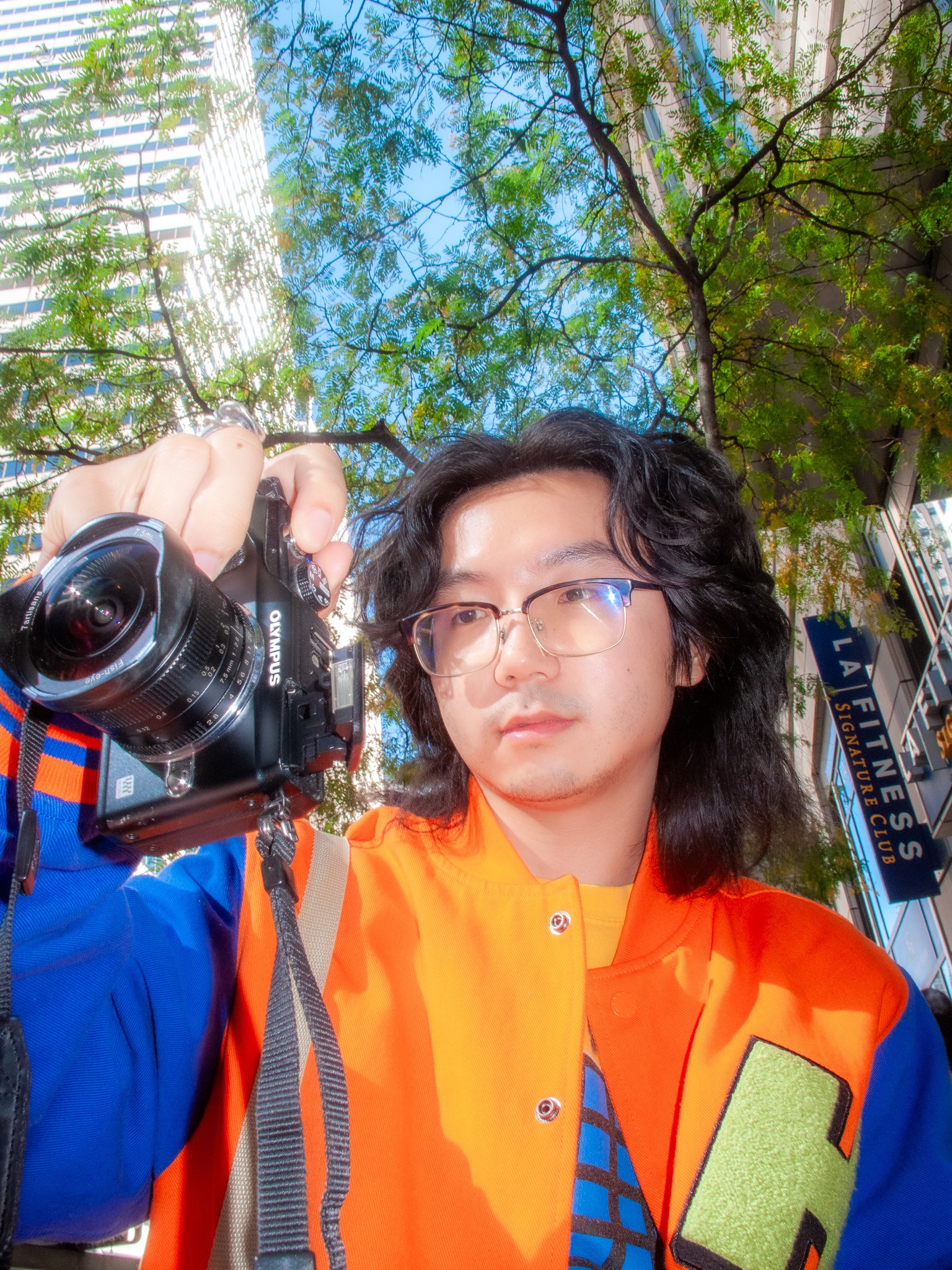
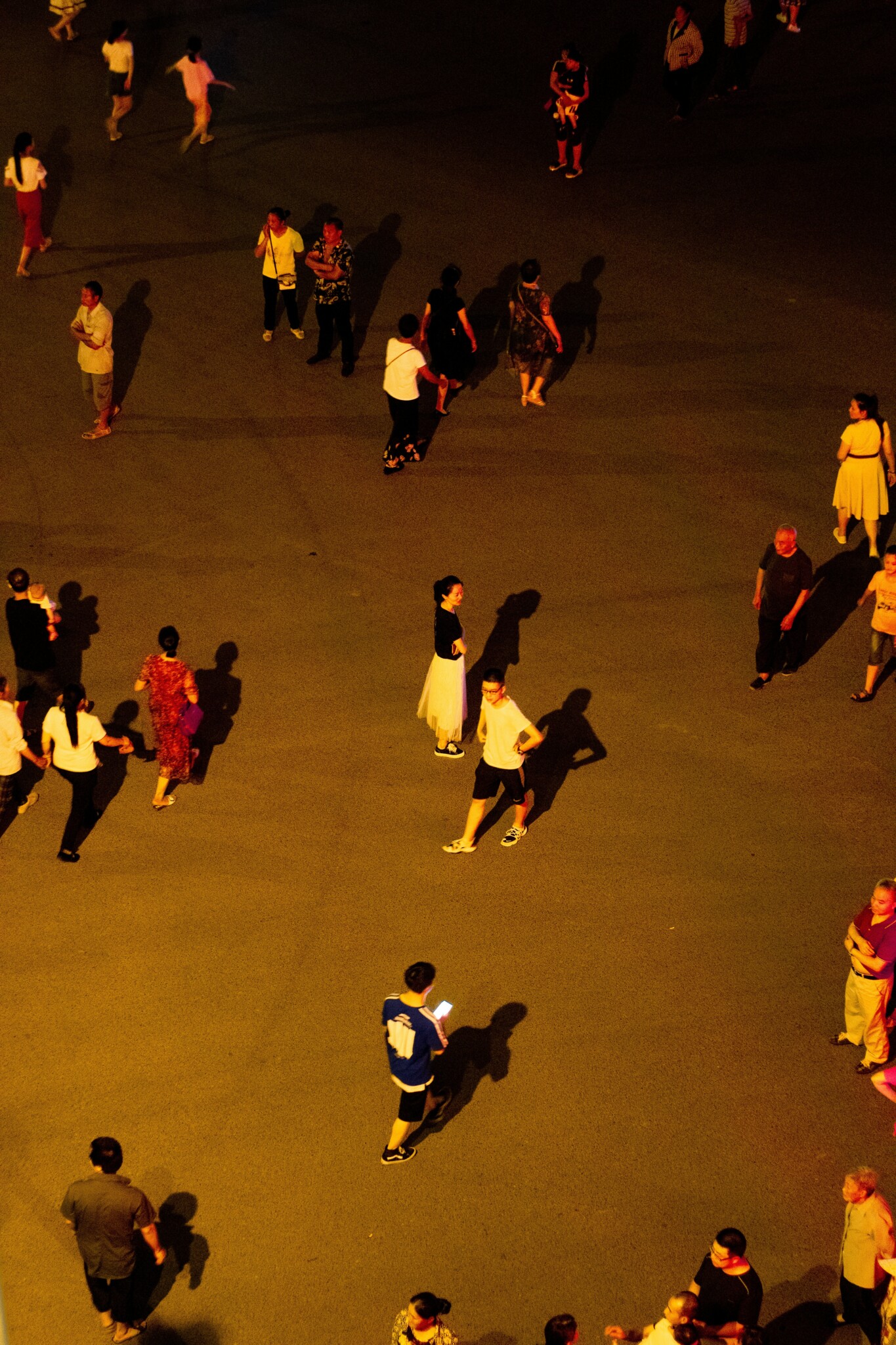
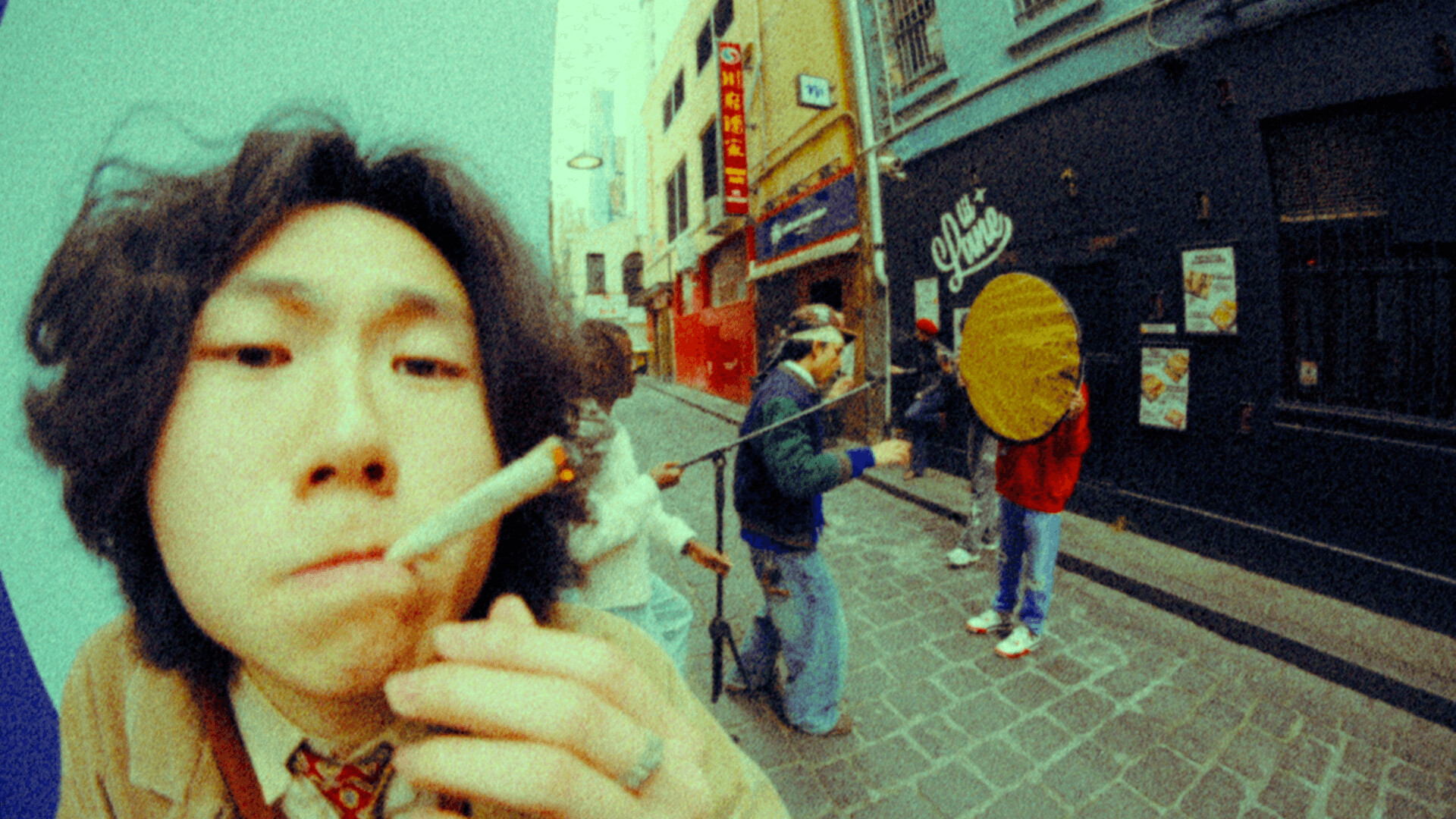
Image Credits
Portrait photos by Stephanie Bell, Alexander J. Milne and Sunset Dream Photography Studio
Stills from “Hold, My Head – Pei Wesley” (directed & edited by Jerry X. Lee), “Seraphim” (directed by Oscar Ramos, co-editing by Jerry X. Lee), “PADLOCK” (edited & colored by Jerry X. Lee)
Street photography by Jerry X. Lee


